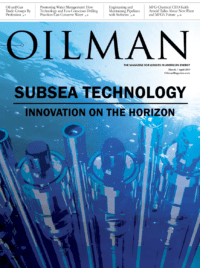Below is an interview with Ashley Gilmore. The interview text has been left intack, with only minor grammatical adjustments.
Tonae’ Hamilton: What is the overall mission of the company and how do you hope to benefit other businesses with your products?
Ashley Gilmore: Our mission is to help our customers improve their business by providing the most timely and accurate ownership knowledge throughout our clients’ tools. Our computation engine and interpretation library eliminate more than fifty percent of the steps between the courthouse and the answers our client needs. By providing transparency into workflows and project statuses our clients are able to better manage time and cost. Tracts reduces an error-prone process and auto-computes ownership providing a level of accuracy our clients can’t get through traditional manual ways. By creating a single workflow, Tracts standardizes ownership knowledge from a wide array of third-party resources and then delivers that data in a consistent and always current method to their GIS, CRM, LMS, MM, etc. systems.
TH: Why do you think it is important for companies, specifically companies in the oil and gas industry, to use title management software?
AG: Title management platforms allow companies to add transparency and standardization to an otherwise opaque and widely varied process. By leveraging tools uniquely designed for getting to the right ownership answers, O&G companies can gain greater levels of accuracy and efficiency. The best title management platforms have computation engines that can calculate mineral and leasehold interest on the fly and can leverage interpretation libraries to automatically identify common title between areas of interest.
TH: Can you describe the types of software tools you provide to your clients?
AG: Our digital notecard captures twenty-two dimensions of mineral and leasehold ownership. Those notecards are then instantly processed through the computation engine to generate runsheets, ownership reports, and flow charts. The interpretations are then indexed in the database and will be accessible as needed in future areas of interest. Tracts doesn’t just store the document, it stores the legal interpretation done by the field landman, in-house team, and attorney. That interpretation can be pulled into any area of interest automatically, instantly updating the new area of interests reports.
TH: Are there any new software tools and products you are currently developing?
AG: Right now, we eliminate more than fifty percent of the steps required to manage title. Our goal is to remove as many steps as possible in order to improve our clients IRR by reducing risk, time, and cost associated with title. Our roadmap currently includes a GIS tool, suggestive interpretations, and auto-tract identification.
TH: In what ways have your title software tools benefited companies?
AG: Our mineral buyer clients are able to review title more efficiently and accurately. This equates to more opportunities and a higher IRR (Internal Rate of Return). Our E&P clients have prevented title defects and significantly reduced the time and cost involved with getting marketable title before drilling. All of our clients can benefit from quicker, more accurate due diligence during acquisitions and instant data rooms for divestiture.
TH: How impactful do you think title management software will be in industries like the oil and gas industry in the next following years?
AG: As AI improves and digital courthouses grow, title management software will become more and more important to stay competitive. Relying on spreadsheets, notecards, and legal pads will be the surest path to missed opportunities and busted title. The future always seems far away until it arrives. When AI can auto-interpret documents and feed the output into a computation engine title defects in current and past leases will be instantly available to the highest bidder. In the next few years, title management software will be the shield companies need to ensure they have marketable title.
TH: What improvements would you like to see happen in the oil and gas industry, from a title management perspective?
AG: A single online resource for title documents from current back to sovereignty is not only inevitable, it is imminent. Aside from what’s already coming, land departments are notorious for being slow adopters of new technology and we would like to see that change. New mineral buyers and E&P companies are fueling faster adoption trying to compete with older players. It is essential that management teams look past the boots, tickets, and hunting trips and start aligning their interests with bigger waterfalls, IRR, and profits.
For additional information about Tracts.co, please call 281-892-2096 or email info@tracts.co.
Tonae’ Hamilton has been a contributor and associate editor to the magazine for two years. She has been writing professionally for almost four years. In her free time, Tonae’ likes to spend time with her three pets, cook, and binge-watch Netflix shows. Tonae' has a Bachelor of Arts in Communication from McDaniel College.










